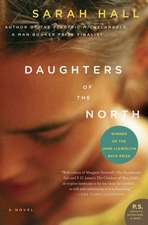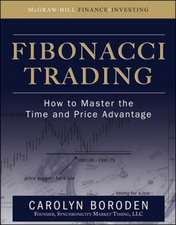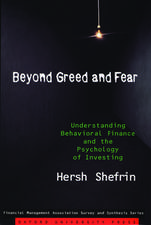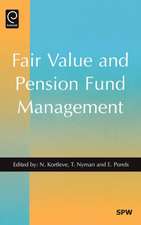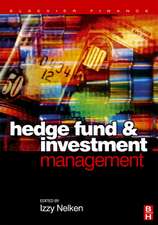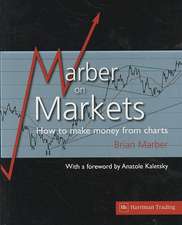Global Finance: Places, Spaces and People
Autor Sarah Hallen Limba Engleză Paperback – noi 2017
Global Finance is a timely look at the contemporary international financial environment, providing an introduction to this dynamic field of research for students and more advanced researchers. Drawing on economic geography, economic sociology and critical management, Hall offers a broad selection of case studies that ground critical theory in our current financial climate.
Hall examines and reviews a wide range of critical approaches relating to the role of money and finance in the global economy, dividing these approaches into three key sections:
- Global finance and international financial centres.
- Global finance and the ‘real’ economy’.
- Global financial subjects and actors.
The book takes a uniquely interdisciplinary approach which, combined with an international spread of case studies, makes this book highly valuable to a wide range of upper level undergraduate courses across the social sciences.
| Toate formatele și edițiile | Preț | Express |
|---|---|---|
| Paperback (1) | 342.35 lei 3-5 săpt. | +25.19 lei 10-14 zile |
| SAGE Publications – noi 2017 | 342.35 lei 3-5 săpt. | +25.19 lei 10-14 zile |
| Hardback (1) | 877.41 lei 6-8 săpt. | |
| SAGE Publications – noi 2017 | 877.41 lei 6-8 săpt. |
Preț: 342.35 lei
Nou
Puncte Express: 514
Preț estimativ în valută:
65.51€ • 67.98$ • 54.76£
65.51€ • 67.98$ • 54.76£
Carte disponibilă
Livrare economică 22 februarie-08 martie
Livrare express 11-15 februarie pentru 35.18 lei
Preluare comenzi: 021 569.72.76
Specificații
ISBN-13: 9781473905948
ISBN-10: 147390594X
Pagini: 184
Dimensiuni: 170 x 242 x 20 mm
Greutate: 0.45 kg
Ediția:1
Editura: SAGE Publications
Colecția Sage Publications Ltd
Locul publicării:London, United Kingdom
ISBN-10: 147390594X
Pagini: 184
Dimensiuni: 170 x 242 x 20 mm
Greutate: 0.45 kg
Ediția:1
Editura: SAGE Publications
Colecția Sage Publications Ltd
Locul publicării:London, United Kingdom
Recenzii
In this rich and compelling text, Sarah Hall delves into the evolution of the financial services industry since the 2008 financial crisis. The narrative is systematic and embedded in the history of the Bretton Wood’s era, providing a thorough introduction to the world of finance for students and general audiences. At the same time, Hall’s skilful analysis of contemporary ‘spaces’ and ‘subjects' provides new insight into the cultural economy of global finance and will appeal to scholars and practitioners of finance alike.
Sarah Hall’s indispensable text illuminates the places, spaces and people of global finance. It explores established and emerging banking centres, the shadowy worlds of offshore havens and the daily enmeshment of almost everyone into the complexities of financial markets. Grounded in a cutting-edge reading of critical cultural economy, the book will be a major point of reference for students and scholars of global finance who are dissatisfied with the complacent, uncritical, Anglocentric and mathematics-driven accounts that dominate the disciplines of economics and finance.
More than ever, individuals, households and firms across the globe now have become entangled into global financial networks: as producers and consumers, financial elites and financial subjects. This book by Sarah Hall convincingly shows how the financial system – far from being a placeless space of monetary flows - is made and transformed in established and new financial centres, and illustrates the consequences experienced by different groups of people and in different places included in or excluded from the system.
With ‘Global Finance’, Sarah Hall has produced an excellent and comprehensive, long overdue account of financial market-making and increasingly financialised ‘real’ economies. This book – grounded in a critical cultural economy approach – provides a masterful and rich analysis of the places, spaces and people that (re-)produce global financial networks and those that are affected by their operations in variegated ways. It should be essential reading for any student and academic interested in the geographies of finance, but will also appeal to a much broader audience interested in how the modern, financialised economy and its (il)logics came about and the ways in which it impacts on the everyday lives of people across the world.
The world of finance continues to be a dynamic and rapidly changing institutional and spatial environment. This book is a state-of-the-art and fascinating analysis of the locational and relational geography of finance and its associated markets, networks and centres. It offers a contemporary and forward looking critique that will be of relevance to all those with an interest in global finance.
An insightful exposition and sympathetic critique of the cultural economy approach to finance, demonstrating clearly how places, spaces and people matter in the production and reproduction of global financial markets. Richly illustrated and clearly structured, it should be a great resource for students and scholars of financial geography and finance in general. Financial Geography has been waiting for a single-authored, accessible textbook-like work for a long time!
Sarah Hall’s Global Finance is an outstanding guide through the world of financial centres, capital flows and financial elites. Using a cultural economy approach, Hall succeeds in laying barre what has remained hidden for even the best-informed insiders.
In the first part of her book, she uses a political economy lens to describe the transformations in global finance after the demise of the Bretton Woods settlement. The second part focuses on the remaining importance of place even in an age of digitalized finance. Through discussions of how London has reproduced its top position, how Singapore and Hong Kong have wriggled their way into the top spots and how offshore centres have changed their outlook in response to new regulation, the new discipline of financial geography is shown to be a crucial part of global finance. The third part finally zooms in on the importance of elites for the production and reproduction of global finance. Next to a discussion of the infrastructure needed for the making of financial elites, Hall also zooms in on the production of financial subjects among the mass of consumers of financial products as well as how this reproduces and furthers existing socio-economic inequalities.
All in all, Hall has succeeded in bringing together state of the art research to open up an empirical field which, as the 2008 financial crisis has amply demonstrated, is way too important to leave to insiders. Given its clarity and its sophistication, I hope this book will become a crucial textbook for the training of the next generation of financial geographers.
The economic crisis of 2007 has moved finance to the centre of social science. Firmly embedded within a cultural economy approach, Sarah Hall discusses the spaces of finance and how they affect different places and the people who live there, in this superbly researched book.
For critical geographers, economists, and other heterodox social scientists alike, Sarah Hall has done us all a great service. She has brought together a vast literature on the cultural and social dimensions of the global financial system and, most importantly, revealed its core theme—the rapidly changing ‘spaces of post-crisis global finance’. Theoretically astute and amply illustrated with examples from different levels of the hierarchy of the financial system, Global Finance is at once sympathetic critique and significant extension of the literature on the political economy of money and finance. In this wide-ranging synthesis, Hall coalesces a close reading of a wide array of new thinking on a twenty-first century cultural economy approach to money and finance. Her book provides a penetrating analysis that transcends the disciplinary divisions that for too long have obscured a unified understanding of the origins of finance-led capitalism beyond the political fragmentation that underpins the regulatory and institutional landscapes of its financial centres.
Sarah Hall’s indispensable text illuminates the places, spaces and people of global finance. It explores established and emerging banking centres, the shadowy worlds of offshore havens and the daily enmeshment of almost everyone into the complexities of financial markets. Grounded in a cutting-edge reading of critical cultural economy, the book will be a major point of reference for students and scholars of global finance who are dissatisfied with the complacent, uncritical, Anglocentric and mathematics-driven accounts that dominate the disciplines of economics and finance.
More than ever, individuals, households and firms across the globe now have become entangled into global financial networks: as producers and consumers, financial elites and financial subjects. This book by Sarah Hall convincingly shows how the financial system – far from being a placeless space of monetary flows - is made and transformed in established and new financial centres, and illustrates the consequences experienced by different groups of people and in different places included in or excluded from the system.
With ‘Global Finance’, Sarah Hall has produced an excellent and comprehensive, long overdue account of financial market-making and increasingly financialised ‘real’ economies. This book – grounded in a critical cultural economy approach – provides a masterful and rich analysis of the places, spaces and people that (re-)produce global financial networks and those that are affected by their operations in variegated ways. It should be essential reading for any student and academic interested in the geographies of finance, but will also appeal to a much broader audience interested in how the modern, financialised economy and its (il)logics came about and the ways in which it impacts on the everyday lives of people across the world.
The world of finance continues to be a dynamic and rapidly changing institutional and spatial environment. This book is a state-of-the-art and fascinating analysis of the locational and relational geography of finance and its associated markets, networks and centres. It offers a contemporary and forward looking critique that will be of relevance to all those with an interest in global finance.
An insightful exposition and sympathetic critique of the cultural economy approach to finance, demonstrating clearly how places, spaces and people matter in the production and reproduction of global financial markets. Richly illustrated and clearly structured, it should be a great resource for students and scholars of financial geography and finance in general. Financial Geography has been waiting for a single-authored, accessible textbook-like work for a long time!
Sarah Hall’s Global Finance is an outstanding guide through the world of financial centres, capital flows and financial elites. Using a cultural economy approach, Hall succeeds in laying barre what has remained hidden for even the best-informed insiders.
In the first part of her book, she uses a political economy lens to describe the transformations in global finance after the demise of the Bretton Woods settlement. The second part focuses on the remaining importance of place even in an age of digitalized finance. Through discussions of how London has reproduced its top position, how Singapore and Hong Kong have wriggled their way into the top spots and how offshore centres have changed their outlook in response to new regulation, the new discipline of financial geography is shown to be a crucial part of global finance. The third part finally zooms in on the importance of elites for the production and reproduction of global finance. Next to a discussion of the infrastructure needed for the making of financial elites, Hall also zooms in on the production of financial subjects among the mass of consumers of financial products as well as how this reproduces and furthers existing socio-economic inequalities.
All in all, Hall has succeeded in bringing together state of the art research to open up an empirical field which, as the 2008 financial crisis has amply demonstrated, is way too important to leave to insiders. Given its clarity and its sophistication, I hope this book will become a crucial textbook for the training of the next generation of financial geographers.
The economic crisis of 2007 has moved finance to the centre of social science. Firmly embedded within a cultural economy approach, Sarah Hall discusses the spaces of finance and how they affect different places and the people who live there, in this superbly researched book.
For critical geographers, economists, and other heterodox social scientists alike, Sarah Hall has done us all a great service. She has brought together a vast literature on the cultural and social dimensions of the global financial system and, most importantly, revealed its core theme—the rapidly changing ‘spaces of post-crisis global finance’. Theoretically astute and amply illustrated with examples from different levels of the hierarchy of the financial system, Global Finance is at once sympathetic critique and significant extension of the literature on the political economy of money and finance. In this wide-ranging synthesis, Hall coalesces a close reading of a wide array of new thinking on a twenty-first century cultural economy approach to money and finance. Her book provides a penetrating analysis that transcends the disciplinary divisions that for too long have obscured a unified understanding of the origins of finance-led capitalism beyond the political fragmentation that underpins the regulatory and institutional landscapes of its financial centres.
Cuprins
Introduction
Section I: Placing global finance: the changing role of international financial centres
International financial centres and the reproduction of global finance
Emerging financial centres and the changing balance of power within international finance
Section II: Spaces of finance and the ‘real’ economy
Financialisation and making finance productive
Finance, production and the rise of new offshore spaces
Section III: Global finance and financial subjects
Elites, financial subjectivities and the (re)production of global finance
Financial exclusion and everyday financial subjects
Afterword: Placing global finance
Section I: Placing global finance: the changing role of international financial centres
International financial centres and the reproduction of global finance
Emerging financial centres and the changing balance of power within international finance
Section II: Spaces of finance and the ‘real’ economy
Financialisation and making finance productive
Finance, production and the rise of new offshore spaces
Section III: Global finance and financial subjects
Elites, financial subjectivities and the (re)production of global finance
Financial exclusion and everyday financial subjects
Afterword: Placing global finance
Notă biografică
Sarah Hall is Professor of Economic Geography at the University of Nottingham, having been educated at the Universities of Cambridge and Bristol. Her work focuses on advancing cultural economy approaches to understanding of markets, power and elites under conditions of finance-led capitalism. Supported by funding from the Economic and Social Research council, the British Academy, the Leverhulme Trust and the Nuffield Foundation, her research mostly centres on London¿s international financial district and its relations with North America, Europe and, increasingly, China. Her work has been pubished in a number of leading academic journals. She was appointed an Editor of the journal Goeoforum in 2013 and held a British Academy Mid Career Fellowship in 2015-2017.
Descriere
Drawing on economic geography, economic sociology and critical management studies, this is an interdisciplinary, student-focused exploration of the contemporary international financial environment.

